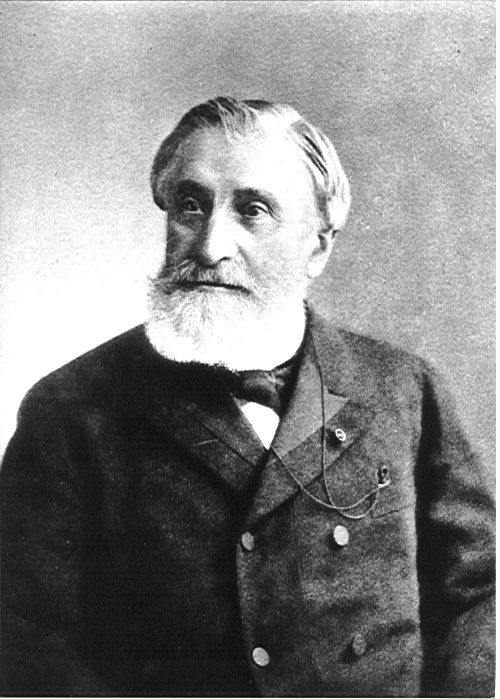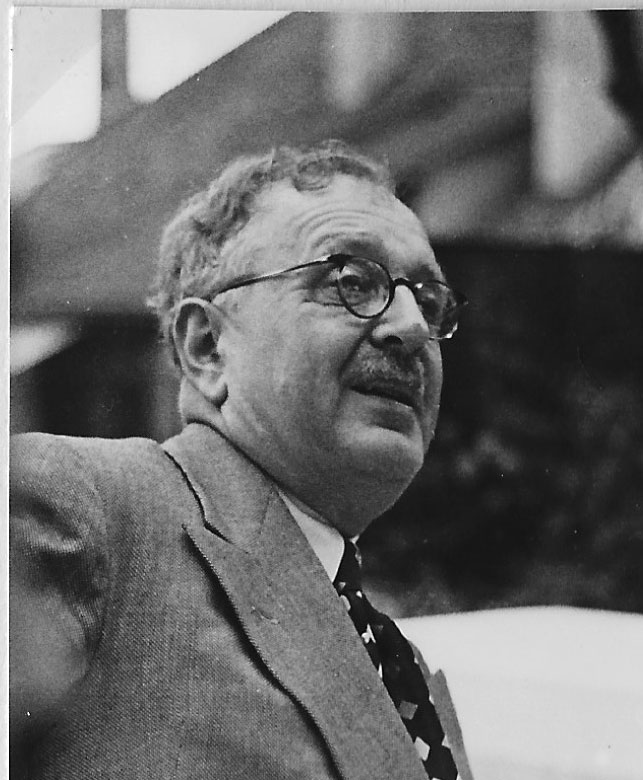|
Cimetière Des Rois
The Cimetière des Rois (French: ''Cemetery of Kings'') (officially Cimetière de Plainpalais), is a cemetery in Geneva, Switzerland. The cemetery is commonly named after la ''rue des Rois'' (French: ''Kings' Street'') near which it is situated. The graveyard was established in 1482 for people who died from plague in the Middle Ages, during the second plague pandemic. Personalities The right to rest in the cemetery of Plainpalais is strictly limited. Under Article 30 (3) of the City of Geneva Cemeteries Regulations, only "magistrates and distinguished personalities, having contributed by their life and activity to the influence of Geneva", p. 6. can claim a concession whose request must be made to the Administrative Council. In the cemetery are buried John Calvin (the Protestant reformer), Jorge Luis Borges (the Argentine author), Sérgio Vieira de Mello (the former UN High Commissioner for Human Rights), Ernest Ansermet (renowned Swiss conductor), and Jean Piaget A full-color ... [...More Info...] [...Related Items...] OR: [Wikipedia] [Google] [Baidu] |
Denis De Rougemont
Denys Louis de Rougemont (September 8, 1906 – December 6, 1985), known as Denis de Rougemont (), was a Swiss writer and cultural theorist who wrote in French. One of the non-conformists of the 1930s, he addressed the perils of totalitarianism from a Christian point of view. After the Second World War, he promoted European federalism. Life He studied at the University of Neuchâtel and in Vienna, and then moved to Paris in 1930. There he wrote for and edited various publications, associating with the personalist groupings and the non-conformists of the 1930s: with Emmanuel Mounier and Arnaud Dandieu, he founded the magazines '' Esprit'' and ''L'Ordre Nouveau'', and he also co-founded a magazine, with Roland de Pury, on existential theology, ''Hic et Nunc''. In June 1940, fearing that defeatism and the pressure of Nazi propaganda (and armies) would lead the federal government to submit to the Germans and give up the traditional democratic values of Switzerland, he led with ... [...More Info...] [...Related Items...] OR: [Wikipedia] [Google] [Baidu] |
Cemeteries In Switzerland
A cemetery, burial ground, gravesite or graveyard is a place where the remains of dead people are buried or otherwise interred. The word ''cemetery'' (from Greek , "sleeping place") implies that the land is specifically designated as a burial ground and originally applied to the Roman catacombs. The term ''graveyard'' is often used interchangeably with cemetery, but a graveyard primarily refers to a burial ground within a churchyard. The intact or cremated remains of people may be interred in a grave, commonly referred to as burial, or in a tomb, an "above-ground grave" (resembling a sarcophagus), a mausoleum, columbarium, niche, or other edifice. In Western cultures, funeral ceremonies are often observed in cemeteries. These ceremonies or rites of passage differ according to cultural practices and religious beliefs. Modern cemeteries often include crematoria, and some grounds previously used for both, continue as crematoria as a principal use long after the interment areas ... [...More Info...] [...Related Items...] OR: [Wikipedia] [Google] [Baidu] |
Sir Humphry Davy
Sir Humphry Davy, 1st Baronet, (17 December 177829 May 1829) was a British chemist and inventor who invented the Davy lamp and a very early form of arc lamp. He is also remembered for isolating, by using electricity, several elements for the first time: potassium and sodium in 1807 and calcium, strontium, barium, magnesium and boron the following year, as well as for discovering the elemental nature of chlorine and iodine. Davy also studied the forces involved in these separations, inventing the new field of electrochemistry. Davy is also credited to have been the first to discover clathrate hydrates in his lab. In 1799 he experimented with nitrous oxide and was astonished at how it made him laugh, so he nicknamed it "laughing gas" and wrote about its potential anaesthetic properties in relieving pain during surgery. Davy was a baronet, President of the Royal Society (PRS), Member of the Royal Irish Academy (MRIA), Fellow of the Geological Society (FGS), and a member of t ... [...More Info...] [...Related Items...] OR: [Wikipedia] [Google] [Baidu] |
Red Cross
The International Red Cross and Red Crescent Movement is a Humanitarianism, humanitarian movement with approximately 97 million Volunteering, volunteers, members and staff worldwide. It was founded to protect human life and health, to ensure respect for all human beings, and to prevent and alleviate human suffering. Within it there are three distinct organisations that are legally independent from each other, but are united within the movement through common basic principles, objectives, symbols, statutes and governing organisations. History Foundation Until the middle of the nineteenth century, there were no organized or well-established army nursing systems for casualties, nor safe or protected institutions, to accommodate and treat those who were wounded on the battlefield. A devout Calvinism, Calvinist, the Swiss businessman Jean-Henri Dunant traveled to Italy to meet then-French emperor Napoleon III in June 1859 with the intention of discussing difficulties in conducting ... [...More Info...] [...Related Items...] OR: [Wikipedia] [Google] [Baidu] |
Gustave Moynier
Gustave Moynier (21 September 1826 – 21 August 1910) was a Swiss Jurist who was active in many charitable organizations in Geneva. He was a co-founder of the "International Committee for Relief to the Wounded", which became the International Committee of the Red Cross after 1876. In 1864 he took over the position of President of the Committee from Guillaume-Henri Dufour, and he was also a major rival of the founder Henry Dunant. During his record long term of 46 years as president he did much to support the development of the Committee in the first decades after its creation. Background Moynier came from a rich and established Geneva family of merchants and bankers. He studied law in Paris and received his doctorate in 1850. Because of his Calvinist persuasion, he became interested in charity work and social problems early on. In 1859 he took over the chairmanship of the Geneva Society for Public Welfare. He was also active in around forty additional charitable organizations an ... [...More Info...] [...Related Items...] OR: [Wikipedia] [Google] [Baidu] |
Paul Lachenal
Paul Lachenal (1884, Geneva – 1955) was a Swiss politician and philanthropist. He was born in Geneva as son of the Jean-François Lachenal and the Louise Marie born Gleckner. He studied law at the University of Geneva, which he completed in 1906 with the acquisition of the licentiate (lic. Iur.). As a result, he completed an internship at the law firm of his uncle (the president of the Confederation) Adrien Lachenal. From 1908 to 1911 he served as deputy to the Geneva prosecutor, and finally from 1912 as General attorney. 1907 he founded together with Eugène Borel (1862 -1955), the law firm Borel & Barbey. Paul Lachenal, who was married to Elisabeth Alice Lachenal Jenny, died on 10 March 1955, four months after his 70th birthday in Geneva. He was the father of, Ariane Garbade Lachenal and Editor and diplomat François Lachenal, and grandfather of the artist Daniel Garbade. Politics The political career of Paul Lachenal, began as member of the Liberation Democratic Par ... [...More Info...] [...Related Items...] OR: [Wikipedia] [Google] [Baidu] |
President Of The Confederation
The president of the Swiss Confederation, also known as the president of the Confederation or colloquially as the president of Switzerland, is the head of Switzerland's seven-member Federal Council, the country's executive branch. Elected by the Federal Assembly for one year, the officeholder chairs the meetings of the Federal Council and undertakes special representational duties. First among equals, the president of the Confederation has no powers over and above the other six councillors and continues to head the assigned department. Traditionally the duty rotates among the members in order of seniority; the vice president of the Federal Council assumes the presidency the year after the officeholder's tenure. The president of the Confederation is not the head of state because the entire Federal Council is the collective head of state. The constitutional provisions relating to the organisation of the Federal Government and federal administration are set out in ''Section 1 ... [...More Info...] [...Related Items...] OR: [Wikipedia] [Google] [Baidu] |
Adrien Lachenal
Adrien Lachenal (19 May 1849, in Geneva – 29 June 1918) was a Swiss politician and Jurist. He was president of the Swiss Confederation in 1869. Married to Anne Louise Eggly in 1878, he had four sons. He was affiliated to the Free Democratic Party. He was a Freemason, and belonged to the Masonic lodge "Fidélité et Prudence" in Geneva. Lachenal is buried at the Cimetière des Rois, Geneva. Career and politics Adrien Lachenal was an outstanding speaker and lawyer, and he became known through defensive mandates in awe-inspiring trials. From 1885 to 1892 he was a substitute judge at the canton of Geneva. His military career led him to the rank of lieutenant-colonel. His nephew and later President of the Grand Council Paul Lachenal joined him in his lawfirm. He was also the chairman of the Military Court of Cassation. In 1880 Lachenal was elected to the Grand Council (Grand Conseil), to which he belonged until 1892. Soon he was one of the most influential politicians of the radic ... [...More Info...] [...Related Items...] OR: [Wikipedia] [Google] [Baidu] |
François Simon (actor)
François Simon (; 16 August 1917 – 5 October 1982) was a Swiss stage and film actor. He appeared in more than 30 films between 1936 and 1982. He was the son of actor Michel Simon Michel Simon (; 9 April 1895 – 30 May 1975) was a Swiss-French actor. He appeared in many notable French films, including ''La Chienne'' (1931), ''Boudu Saved from Drowning'' (1932), ''L'Atalante'' (1934), ''Port of Shadows'' (1938), '' The He .... Filmography External links * 1917 births 1982 deaths Swiss male film actors Actors from Geneva 20th-century Swiss male actors {{Switzerland-actor-stub ... [...More Info...] [...Related Items...] OR: [Wikipedia] [Google] [Baidu] |
Robert Musil
Robert Musil (; 6 November 1880 – 15 April 1942) was an Austrian philosophical writer. His unfinished novel, ''The Man Without Qualities'' (german: link=no, Der Mann ohne Eigenschaften), is generally considered to be one of the most important and influential modernist novels. Family Musil was born in Klagenfurt, Carinthia, the son of engineer Alfred ''Edler'' Musil (1846, Timișoara – 1924) and his wife Hermine Bergauer (1853, Linz – 1924). The orientalist Alois Musil ("The Czech Lawrence") was his second cousin. Soon after his birth, the family moved to Chomutov in Bohemia, and in 1891 Musil's father was appointed to the chair of Mechanical Engineering at the German Technical University in Brno and, later, he was raised to hereditary nobility in the Austro-Hungarian Empire. He was baptized ''Robert Mathias Musil'' and his name was officially ''Robert Mathias Edler von Musil'' from 22 October 1917, when his father was ennobled (made ''Edler''), until 3 April 1919, whe ... [...More Info...] [...Related Items...] OR: [Wikipedia] [Google] [Baidu] |
François Lachenal
François Paul Lachenal (Geneva 31 May 1918 – 22 August 1997) was a Swiss publisher and diplomat, who beginning in 1940 played a significant role in publishing the writings of the French authors during the occupation of France by Germany. He was member of the Swiss delegation in Vichy till 1944 and later till 1945 at the Swiss embassy in Berlin. Publisher of the magazine ''Traits'' he was son of Genevan politician Paul Lachenal, nephew of The president of the Swiss Confederation Adrien Lachenal and married to Johanna Bertha Caroline Otken. He is buried at the Cimetière des Rois in Geneva. Publisher It is due to his occupation as diplomat that he was able to safeguard and transport important manuscripts of French writers of the French Résistance into Switzerland, like Le Silence de la mer by Vercors, which he published at Les Editions de Minuit and ''Les Trois Collines'' which continued its activities until 1965. He published fifty editions of the literary magazine ''Tra ... [...More Info...] [...Related Items...] OR: [Wikipedia] [Google] [Baidu] |






